Eseovwe Emakunu: You directed and produced Wedlock of the Gods, written by Zulu Sofola, which attracted dignitaries and theatregoers from all over Nigeria. Was that production a statement, for you, about women directors and producers and working successfully in the theatre world in Nigeria?
Josephine Awele Odunze: Producing and directing Wedlock of the Gods was one of the most exciting, although exhausting, theatre projects I have worked on. It not only brought out the best in me as a theatre practitioner; it brought out the feminine instinct that frowns at some issues that are militating against women’s empowerment and development. Yes, I would say the production was a statement that women in Nigeria can cut their teeth at the highest level as theatre practitioners and, if given the chance, can really hold their own globally. I am looking forward to the time when women will dominate the Nigerian theatre scene and will one day be appointed to be the director general/artistic director of the National Theatre and the National Troupe respectively. So, yes, my direction of Wedlock of the Gods was a statement production.
Eseovwe: What were the issues you dealt with during the production of Wedlock of the Gods?
Josephine: I was able to address the issues of forced marriage, female objectification and commoditization, patriarchy, and subjugation of women. These are the things that were rife in Wedlock of the Gods. Ogwoma, a character in the play, decides it is her right to make the choice of who to marry. Ogwoma has someone she truly loves, but she has a brother who is ill. The father, Ibekwe, felt she should be given out in marriage because they needed money to treat the brother. Because we in Nigeria have this notion the woman will end up in the kitchen or the other room, giving her out against her wishes was not considered a matter of serious concern.
So there is no need to educate the girl because society tends to favor the male child over the female child. They felt she should use her bride's wealth to cure the brother who was bed-ridden. He was ill, and of course men are seen as breadwinners. And you know this patriarchy thing in Africa? I'm bringing it down to Nigeria—it affected the play. I was able to speak unequivocally because the audience was able to identify with what was going on. So I was able to make a huge statement with the production of the play, Wedlock of the Gods.
Wedlock of the Gods was produced in 2021, but it is still as fresh as a play that was just produced a month or two ago.
Eseovwe: You mentioned two key issues: the commodification of women through marriage and the issue of forced marriage with the girl child in a family. Do you think the performance that you produced actually dealt with those?
Josephine: Yes, I brought these issues to fore, showing that empowering women does not mean disempowering men. Ogwoma was not allowed to get married to the man she truly loved. Her man, Uloko would have also paid the same bride's wealth that was needed to treat the brother if he was given the opportunity to. Then, that same bride's wealth will be used to take care of the sick brother and Ogwoma would go to a man she truly loves. That's like we say, “using one stone to kill two birds.” At that point, nobody would be aggrieved. But in the play, Ogwoma was aggrieved. She wasn't given the right to choose who she really wanted. So, she was not dedicated to that marriage. She made sure all she did was against the marriage. It was just like sitting on a keg of gunpowder which will definitely explode someday.
And like she said in one of her lines, “Now God has answered my prayers and nothing will stop me this time." She felt her freedom was given back to her by the supreme being. Even though Ogwoma died for love, her death and the death of Uloko could be justified. So I made a huge statement to that extent.
You could see the audience was so very empathic. They cried; they understood. The students still talk about the play. They still remember it through the message that Wedlock of the Gods was able to project to the people. So, Wedlock of the Gods was produced in 2021, but it is still as fresh as a play that was just produced a month or two ago. The audience, the management staff that attended, they look forward to having something as big as Wedlock of the Gods in the theatre soon. It was a huge success.
Eseovwe: Now the issue of forced marriage of young girls has been an important talking point in the world, especially against the backdrop of their educational progress as it cuts short girls’ education. Would you agree with the assertion that forced marriage is an act of violence perpetrated against women?
Josephine: Forced marriage of either teenage girls or any girl or woman irrespective of age is violence against women, and there is no reason on earth that can justify such barbaric violation of the rights of, firstly, the growth and development of girl—educationally and otherwise—and, secondly, the freedom to choose who to marry. These are critical issues and must be dealt with by the people responsible for making legislation and policies regarding marriage in Nigeria.
The girl or woman is violently uprooted from school to a man’s house or violently dragged, coerced, or threatened to spend a lifetime with a man she barely knows. It is cruel, and we can’t shy away from saying it. The production of Wedlock of the Gods is critical because it highlights these issues. Just like Ogwoma, these girls want to leave the man they are forced to marry. They would not mind death coming to save them. They could even initiate the process of the death coming, committing murder in the process. This is not a justification of their atrocious actions, but we’ve read stories recently of young girls killing their husbands. If they were not violently forced into a home they never wanted to be in, such tragedy would have been avoided. This is why this outright violation of their right to growth, education, and choice of marriage must stop now. This is what my production of Wedlock of the Gods is illuminating and educating the government dignitaries in attendance about.
This is something that we should unequivocally speak against. Child marriage or forced marriage should not be allowed by any tradition. Women and girls should have the right to their choices.
Now we have people from the northern part of Nigeria where forced marriage is approved because it is part of their religion, through Islamic laws. But a lot of these bills have been brought before the National Assembly, arguing that these girls should be allowed to go to school. They should be allowed to go to school because girls also deserve to be educated. So why give out these girls in marriage to men old enough to be their parents when they cannot speak for themselves? And when eventually they are grown, they try to work against it. That is where it brings about a lot of consequences that are even more devastating than the action the children have taken. So, this is something that we should unequivocally speak against. Child marriage or forced marriage should not be allowed by any tradition. Women and girls should have the right to their choices.
Eseovwe: Given that performances like yours do have an influence on government on policy makers, especially when there are dignitaries gracing your production, does it help them to make decisions regarding forced marriage of the teenage girls?
Josephine: With Wedlock of the Gods, my greatest drive was to help the government see the dangers in forced marriages. This would help influence the policy direction and engender a change in our marriage laws. The demographic that suffers from forced marriages are young teenagers. At that age, they barely have a say, and they do not understand what getting married is all about. Getting married takes a lot of psychological and emotional preparations. These girls can’t even bathe themselves well, and before you know it they are thrown into a family that they don’t know anything about.
Ogwoma was not a teenager in the world of the play. She was in her mid-twenties and was prepared psychologically and emotionally for marriage. She was set to get married to Uloko, her lover. If she could be forced into a marriage she does not want, teenagers who barely can conjure good sentences would not be able to say a word in protest. That is why the government must protect them with enforceable laws. This is what I tried to establish. The violence these young girls are witnessing can only be stopped by the government with good laws, and I think that performances like Wedlock of the Gods can help influence them.
Eseovwe: With theatre being a compass to society, how loud do you think the theatre practitioners should be in amplifying the detrimental issues of forced marriage of the teenage girls that are evident especially those in the North?
Josephine: Yes. Women have been speaking loudly. A lot has been done by some prominent women in the theatre. We have some women directors. We have the likes of Kemi Adetiba who produced King of Boys. She also directed Wedding Party. We have Omoni Oboli. We have Blessing Effiom Egbe, who produced Lekki Wives, Ten Virgins, etc. And we have a lot of them who have been doing so much to bring the issues of women to light through theatrical performances. We have the likes of Senator Ita Giwa of Cross River State, who through Calabar Carnival has been speaking for women. She has been speaking on issues affecting women and gender. Women should always be given the right to speak. Women should not always be given irrelevant positions... like in politics, women are poorly represented. The only thing they do is cheer the men. They just stand on the streets, sing, and dance. That is not the only role women should play. Women should be in decision-making rooms. Women should be financial members. Women should be speaking authoritatively in meetings because women make up a large percentage of voters. So, they should be allowed to speak up and be represented.
Eseovwe: Let's stay with this. Now, how loud do you think we should amplify the issue of forced marriage of teenage girls?
Josie: As loud as we can until our voices are heard. Let me digress a little. I believe that most women in Nigeria are not asking for gender equality but gender parity, because we are in Africa, and Africa will never settle for gender equality. I think that most women have come to accept it that way. A man will always be the head, but let us allow the women to be the neck so the neck can turn the head to this side, turn the head to the other side. What I am trying to say is, inasmuch as we are trying to make this loud, women need to support their kind. Women need to support women for the project of visibility to be successful.

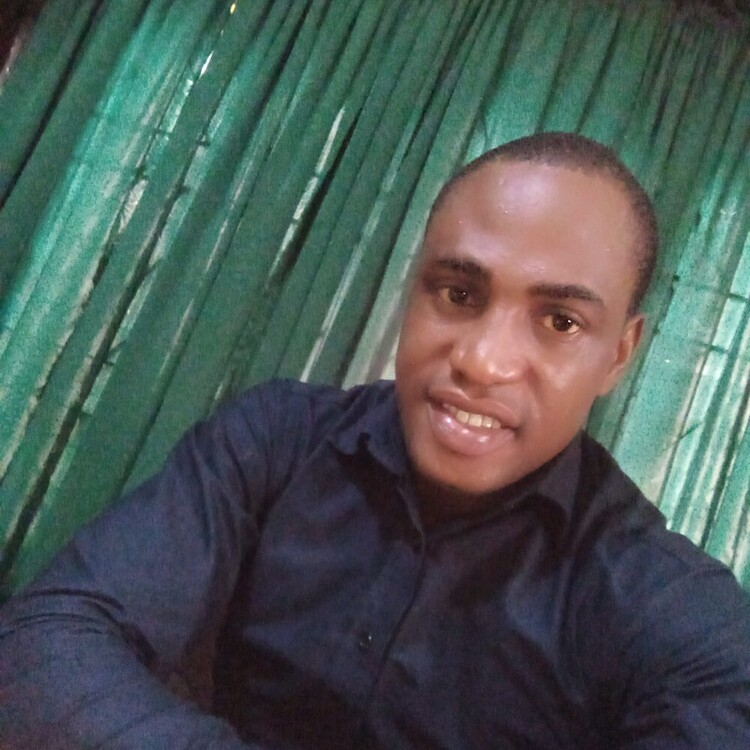
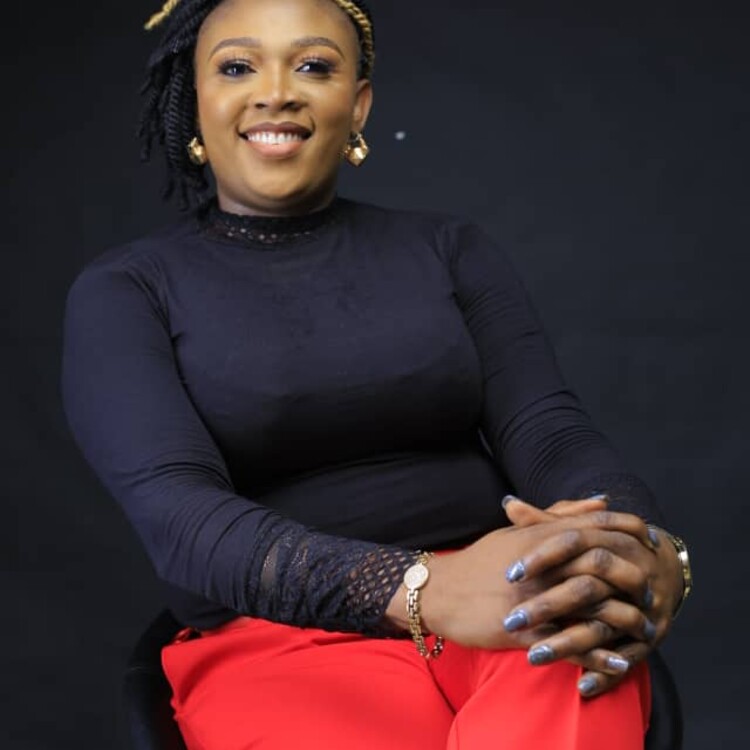
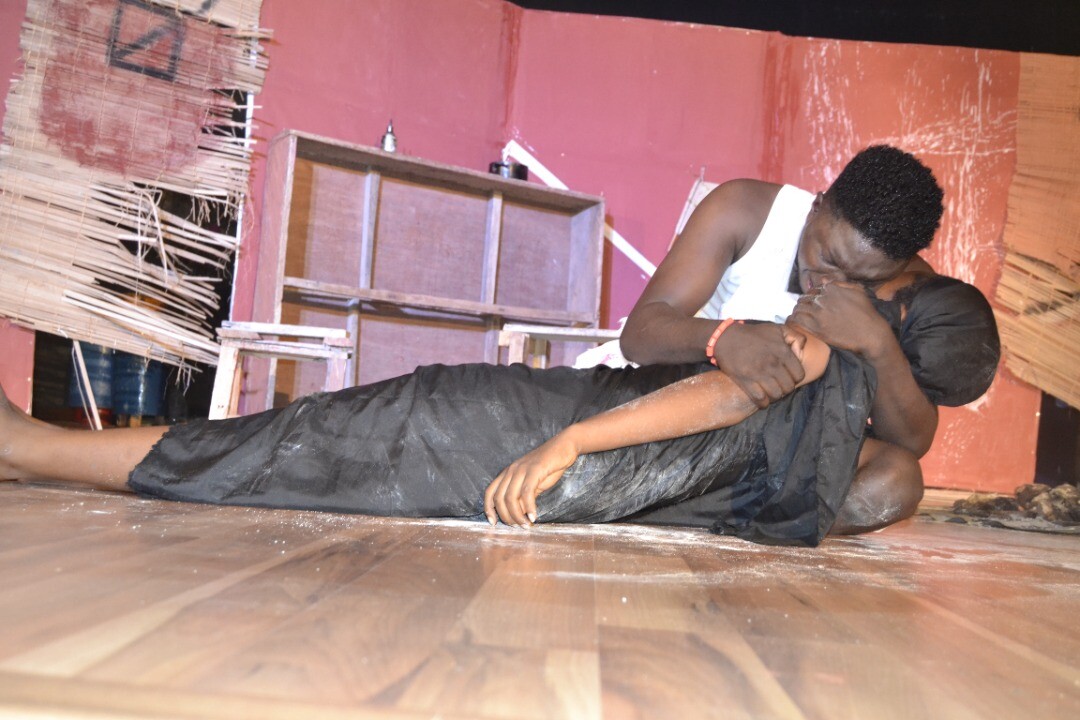
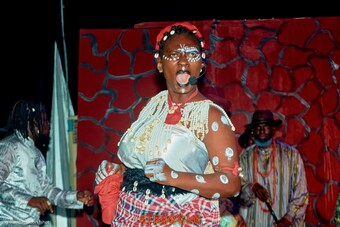


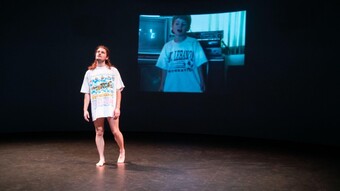



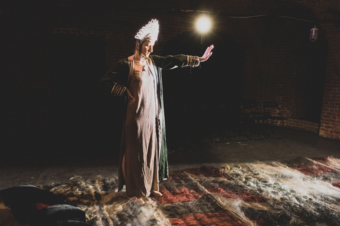

Comments
The article is just the start of the conversation—we want to know what you think about this subject, too! HowlRound is a space for knowledge-sharing, and we welcome spirited, thoughtful, and on-topic dialogue. Find our full comments policy here